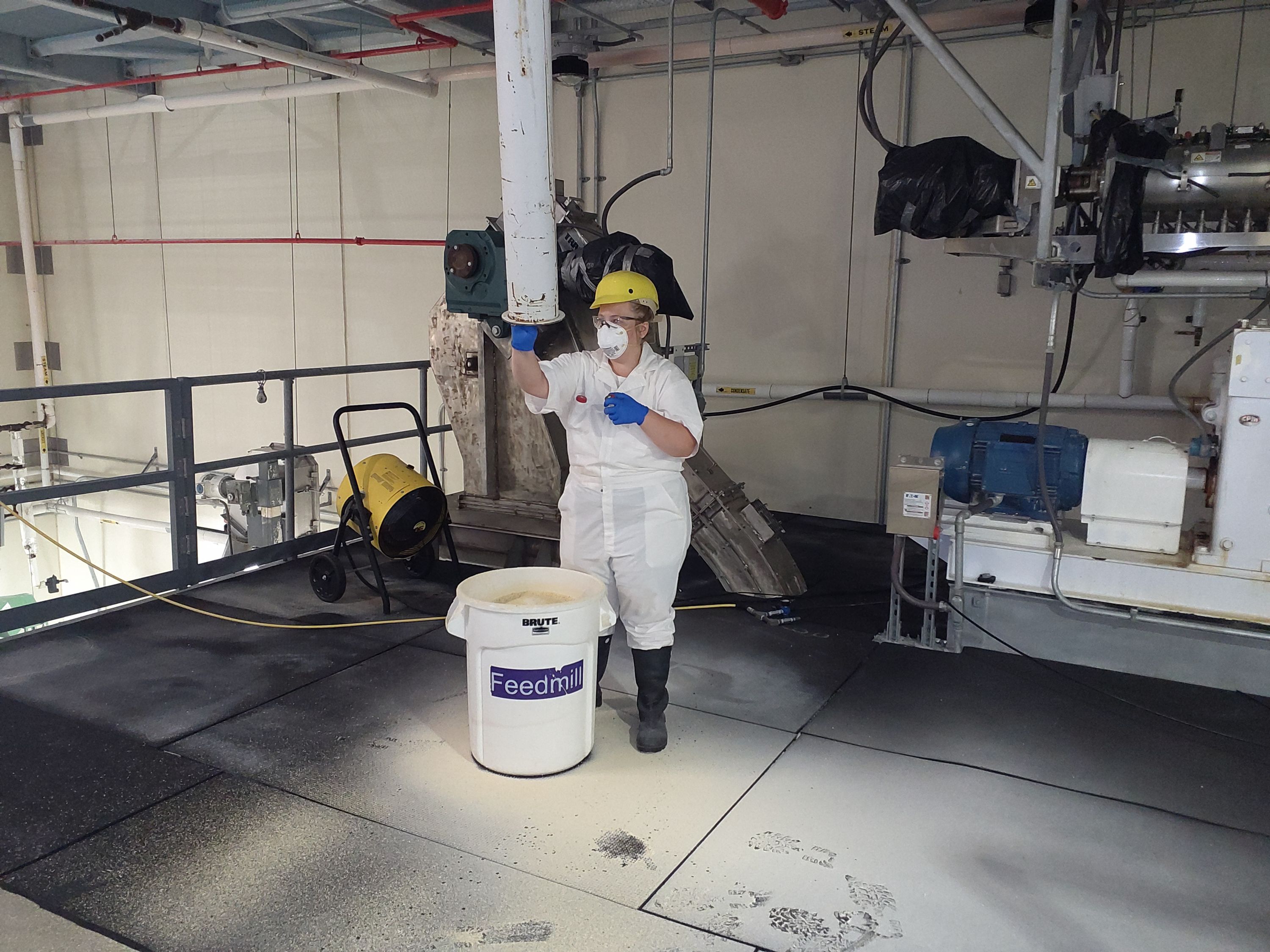IFEEDER Newsletter: Volume 9, Issue 4
April 9, 2024
How Do You Turn $1 into $8?
At the Institute for Feed Education and Research, we aim to leverage your investments with additional stakeholder resources to maximize the value of our work. One way we do that is through grants. Last week, we partnered with the Meat Institute and Context Network to submit a pre-proposal to the Foundation for Food and Agriculture Research (FFAR). It remains to be seen if we'll be asked to submit the project for a full proposal, but I do know the work we are pursuing has resonated with our stakeholders.
Research, we aim to leverage your investments with additional stakeholder resources to maximize the value of our work. One way we do that is through grants. Last week, we partnered with the Meat Institute and Context Network to submit a pre-proposal to the Foundation for Food and Agriculture Research (FFAR). It remains to be seen if we'll be asked to submit the project for a full proposal, but I do know the work we are pursuing has resonated with our stakeholders.
Projects submitted to FFAR are required to have 100% match, with at least 50% in cash and the remainder in-kind. For our submission request, we achieved the 100% match requirement with support from the Meat Institute, Context Network, National Pork Board (NPB), American Egg Board, U.S. Roundtable for Sustainable Beef, Global Feed LCA Institute and U.S. Poultry and Egg Association. Building on work that IFEEDER currently has underway, the project, if funded, would address this hypothesis:
Animal agriculture supply chain stakeholders WOULD include interventions such as ration innovation in their targets and adoption efforts IF they could utilize a standardized and accepted methodology and model to understand ration innovation derived reductions in their supply chain. And, IF the usable methodology and model is made accessible via a reliable and robust dataset documenting ration innovation.
The work IFEEDER has undertaken in the last three years led us to this point. Through demonstrated actions and greater awareness of IFEEDER’s role to support the animal food industry and our customers, we brought together a diverse group of partners from the animal protein sector.
If funded, we’ll still need animal feed industry investments to fulfill IFEEDER’s portion of the cash match, and we’ve got a good return on investment. With this project, every $1 we provide will be matched with $8 from the project partners.
The first step is taken. Now, we wait patiently to see if we are invited to submit a full proposal.
What I'm Reading...
A recent article from the Dairy Innovation Hub in Wisconsin describes efforts to take a holistic approach to address methane emissions from dairy farming. By integrating insights from genetics, nutrition and microbiology, the hub seeks to develop practical strategies for reducing methane emissions while maintaining the health and productivity of dairy cows.
Researchers will explore genetic factors that influence methane production in dairy cows. By identifying genetic markers associated with low methane production, they aim to breed cows that produce less methane naturally. The study will also investigate how different diets and feeding practices impact methane emissions, including evaluating the effects of dietary supplements, forages and feed additives that could potentially reduce methane production in cows. And, the researchers will study the microbial communities present in the cow's digestive system, particularly the rumen, where methane is produced.
IFEEDER Fodder
Click the links below to read the latest posts from the recently launched IFEEDER Fodder blog.
 Preparing for the Next Animal Disease Outbreak – Feed Mill Hygiene and Decontamination
Preparing for the Next Animal Disease Outbreak – Feed Mill Hygiene and Decontamination
By: Olivia Harrison; Chad Paulk, Ph.D.; Jordan Gebhardt, D.V.M. and Ph.D.; Jason Woodworth, Ph.D.; and Cassandra Jones, Ph.D.
Since the outbreak of the porcine epidemic diarrhea virus in 2013, the feed and livestock industries have worked to gain a better understanding of pathogen transmission through feed and the supply chain. Multiple studies have documented the distribution of viral pathogens in mills after contamination, the stability of viruses in feed and ingredient matrices, and virus reduction using chemical mitigants or extended holding times.
By: Chad Risley, Ph.D.
Since 1944, the National Research Council, and now the National Academies of Sciences, Engineering and Medicine, has published 11 editions of the Nutrient Requirements of Swine. As the primary reference for developing swine diets, the 12th edition will be a valued resource to feed industry members, their customers, swine nutritionists and researchers. IFEEDER, with the NPB, National Corn Growers Association and United Soybean Board, is providing funds and industry feedback to support the revision.
Council, and now the National Academies of Sciences, Engineering and Medicine, has published 11 editions of the Nutrient Requirements of Swine. As the primary reference for developing swine diets, the 12th edition will be a valued resource to feed industry members, their customers, swine nutritionists and researchers. IFEEDER, with the NPB, National Corn Growers Association and United Soybean Board, is providing funds and industry feedback to support the revision.
Donate Now!
For every $1 IFEEDER invests in research and education projects, $5 is leveraged from other sources. All donations go directly toward projects, as IFEEDER's administrative costs are borne by American Feed Industry Association, so your donations go even further. Help us maximize our reach by donating today! Click the link below to make a gift. For questions, contact Lara Moody.